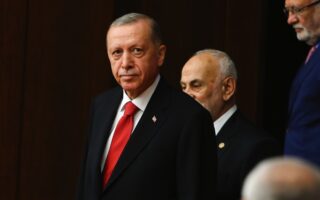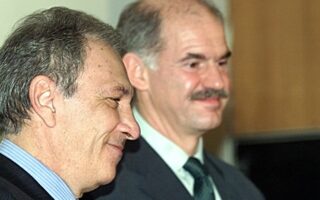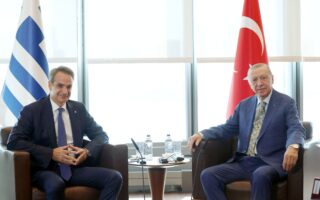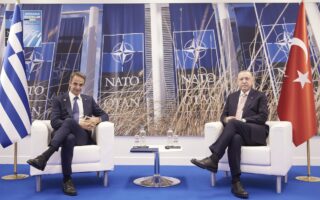Israel, Hamas and Erdogan’s visit to Athens
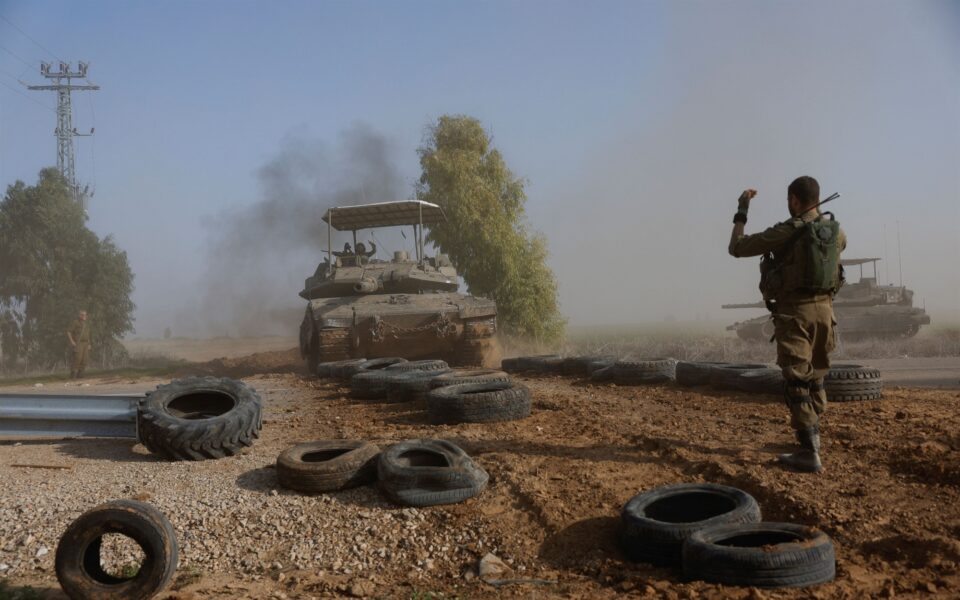
Citizens in Israel are terrified and speechless, trying to understand the inability of the army and its secret services to confront Hamas terrorism, while Greece and Turkey are working on mutual respect and cooperation based on NATO military confidence building measures.
Israel’s security system appeared to be faltering, failing to provide strong guarantees of safety and security within its sovereign borders.
Terrorism and surprising attacks remain central themes in the the global debate since Hamas, Hezbollah and Iran contest Israel’s right to exist.
According to Hamas’ biased doctrine:
• No one is permitted to establish relations with Israel.
• Mediation efforts to improving intra-Palestinian relations are hindered if they do not comply with Hamas’ extreme demands.
• Hamas’ electoral victory (2006), despite being contested by the Palestinian Authority and the international community due to the cruel oppression exercised on Gaza’s local population, is still promoted by Hamas leaders as a popular and democratic electoral achievement.
• Any attempt at negotiation and mediation either with Egypt or Qatar has been simply exploited and used by Hamas to prepare terrorist operations on Israeli soil.
• Hamas maintains its doctrinal position that calls for the destruction of Israel. Any belief in its change of stance is irrational and delusional.
• Hamas consistently provokes the Palestinian Authority, which is considered as a traitor of Palestinian claims, while Hamas is also seeking to undermine the political significance of the Palestinian Authority even on the Israeli side.
Historically, Turkey has been a NATO member. However, its foreign policy has shown signs of divergence from traditional Western alliances
After almost two months of ongoing military operations, the international community recognizes the urgent need for decisive initiatives and the implementation of measures to terminate the confrontation, all terrorist attacks, and the use of civilians and hostages as human shields. Hamas’ involvement in illegal activities, such as arms and drug trafficking, as well as exploiting Palestinians and expats for digging the underground network of terror and death, contradicts its self-proclamation as a “liberation organization.” While Hamas, in collaboration with Iran and Hezbollah, tries to thwart attempts for a solution to the Israeli-Palestinian conflict and related occupied territories, international actors are urged to comply with USA efforts and work diligently on United Nations Security Council Resolutions for a two-state solution, with the 1967 borders, and with Jerusalem as the capital of both states.
The provisional truce between Israel and Hamas in Gaza varied within the international community. Some viewed it as a positive step towards de-escalation and peace in the region, while others were more skeptical, considering it a temporary measure without addressing underlying issues. Against all omens, Egypt and Qatar continue their persistent efforts for encouraging a long-standing truce terminating all terror actions against hostages and civilians.
In this international environment, the forthcoming meeting between Prime Minister Kyriakos Mitsotakis and President Recep Tayyip Erdogan (Athens, December 7, 2023) is of great bilateral and multilateral importance, since both political leaders could spread out, globally, an important message of appeasement, mutual respect and enhanced Euro-Atlantic cooperation in the East Mediterranean and the wider region of the Middle East and North Africa (MENA).
Historically, Turkey has been a NATO member. However, its foreign policy has shown signs of divergence from traditional Western alliances due to various geopolitical factors, including disagreements over arms deals with Russia and China. Turkey’s potential purchase of Eurofighters from a Western nation could be interpreted as an attempt by Ankara to reaffirm its commitment to NATO and the broader Euro-Atlantic community. Defense deals often go beyond mere military transactions and can impact economic and political relations between nations.
However, defense deals and geopolitical strategies are multifaceted and complex. Factors such as diplomatic relationships, economic interests, and ongoing geopolitical developments also play significant roles in shaping a country’s strategic orientation. Greece is offering an opportunity for smoother Turkish reorientation towards the Euro-Atlantic strategies. President Erdogan will meet with Prime Minister Mitsotakis in Athens without damaging his profile. In Vilnius both leaders accepted the stake for paving reconciliation and coexistence in a tiny neighborhood of our global village.
Any bilateral progress in Athens would be considered by the international community and mainly by the peoples in the two neighboring countries as the beacon of win-win negotiations for managing international pending issues in the wider MENA region, such as the Palestinian one and – why not? – by respecting UN resolutions and the European acquis, the question of Cyprus.
Dr Theodoros J. Theodorou is ambassador a.h., former Greek special envoy in the MENA region, senior adviser, Foreign Affairs Institute (fainst.eu).
